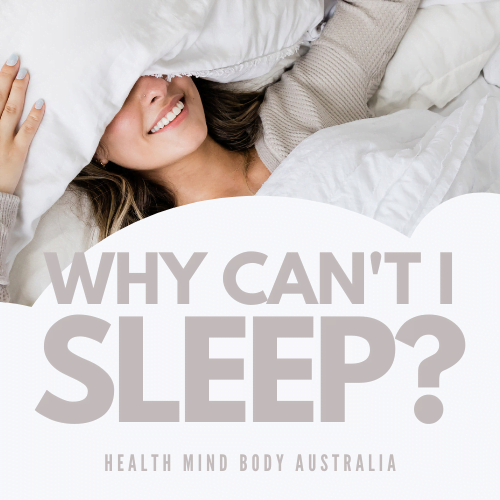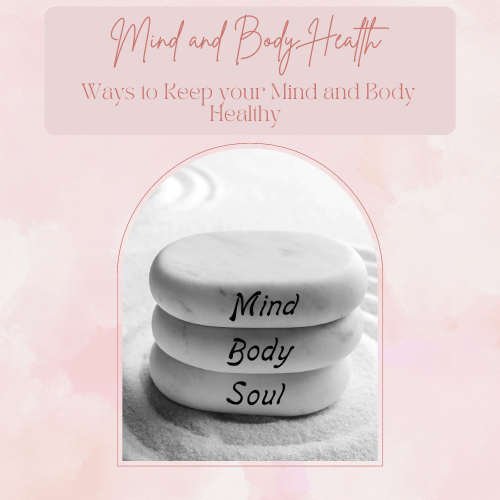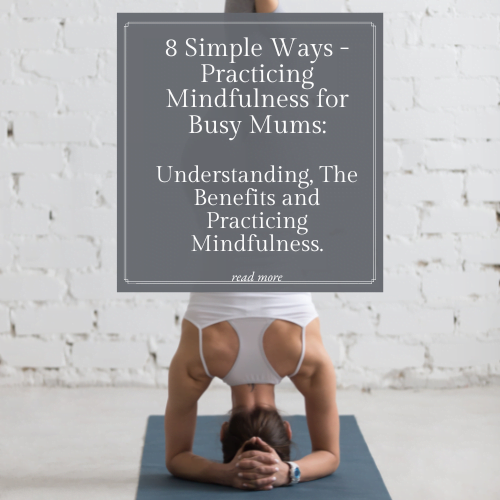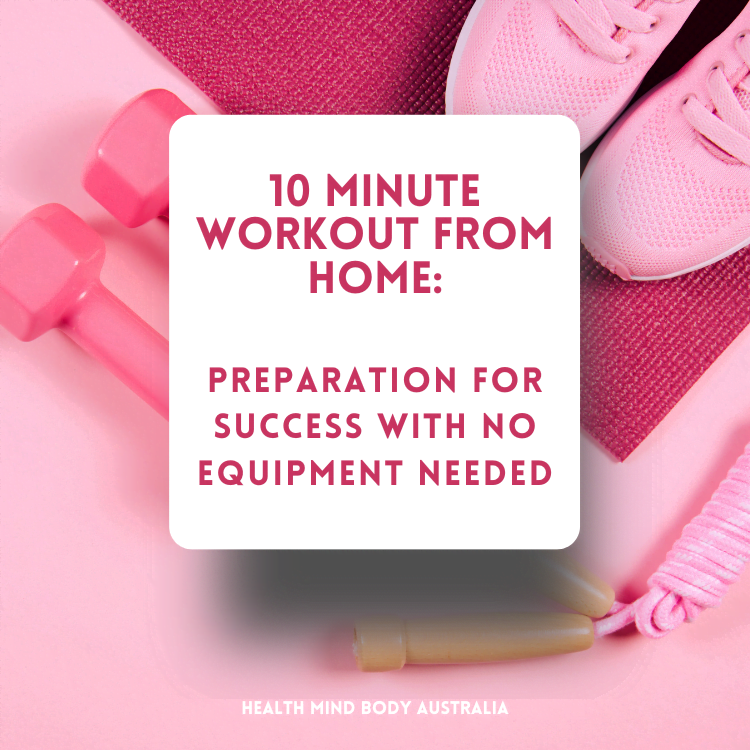7 Common Reasons: ‘Why Can’t I Sleep’ and How to Fix Them
Many of us have experienced the frustration of lying awake in bed, unable to fall asleep.
If you find yourself asking, “Why can’t I sleep?” you’re not alone.
Sleep disturbances can have various causes, ranging from lifestyle factors to underlying health conditions.
In this article, we’ll explore seven common reasons why you might be having trouble sleeping and provide practical tips to help you overcome them and hopefully fix the ‘Why Can’t I Sleep’ problem.
‘Why Can’t I Sleep’ – Stress and Anxiety
Stress and anxiety are common culprits behind sleepless nights.
When you’re feeling overwhelmed or anxious, it can be difficult to quiet your mind and find the relaxation needed to fall asleep.
Understanding the impact of stress on your sleep and implementing effective relaxation techniques can significantly improve your sleep quality.
Stress and Anxiety Techniques

One approach to combatting stress and anxiety before bedtime is to incorporate relaxation techniques into your nightly routine.
Deep breathing exercises, for example, can help slow down your heart rate and induce a state of relaxation.
Before getting into bed, find a comfortable position and take slow, deep breaths, focusing on inhaling deeply through your nose and exhaling slowly through your mouth.
This simple practice can help calm your nervous system and prepare your mind and body for sleep.
Meditation is another powerful tool for reducing stress and promoting better sleep.
Find a quiet space where you can sit or lie down comfortably.
Close your eyes and bring your attention to your breath or a specific point of focus, such as a mantra or a guided meditation.
Allow your thoughts to come and go without judgment, gently redirecting your focus back to your breath or chosen point of focus.
Regular meditation practice can help quiet racing thoughts, alleviate stress, and promote a sense of tranquillity conducive to sleep.
Listening to calming music or nature sounds can also help create a peaceful sleep environment.
Choose soothing melodies or instrumental tracks that promote relaxation.
Soft, ambient sounds, such as rainfall or ocean waves, can create a serene atmosphere that lulls your mind into a state of tranquillity.
Consider using headphones or a dedicated sleep sound machine to minimise external distractions and immerse yourself in the soothing sounds.
Creating a calm and peaceful sleep environment is crucial for combating stress and anxiety.
Your bedroom should be a sanctuary dedicated to rest and relaxation.
Keep the room clean, tidy, and free from clutter, as a cluttered space can contribute to a sense of unease.
Use soft, comfortable bedding and invest in a mattress and pillows that provide adequate support. Consider using blackout curtains or an eye mask to block out external light, as darkness promotes the release of melatonin, the hormone that regulates sleep.
In addition to these relaxation techniques, it’s essential to address the root causes of your stress and anxiety.
Consider incorporating stress management strategies into your daily routine, such as regular exercise, engaging in hobbies, practicing mindfulness, or seeking support from a therapist or counsellor.
By actively managing your stress levels throughout the day, you can minimise the negative impact on your sleep.
Remember, finding relief from stress and anxiety takes time and consistent effort.
Experiment with different relaxation techniques to determine what works best for you.
Be patient and gentle with yourself as you navigate your sleep struggles.
‘Why Can’t I Sleep’ – Poor Sleep Habits
Poor sleep habits and irregular sleep schedules can wreak havoc on your body’s natural sleep-wake cycle, making it difficult to fall asleep and wake up feeling rested.
Establishing a consistent sleep routine is essential for promoting healthy sleep patterns and optimising your overall sleep quality.
One crucial aspect of a consistent sleep routine is maintaining regular bedtimes and wake-up times. Going to bed and waking up at different times each day can confuse your internal clock, also known as the circadian rhythm.
This internal clock regulates various biological processes, including sleep and wakefulness.
When your sleep schedule is erratic, your circadian rhythm becomes disrupted, making it harder for your body to adjust and initiate sleep at the desired time.
To combat this, aim to go to bed and wake up at the same time every day, including weekends. Consistency reinforces your body’s internal clock, allowing it to synchronise with your desired sleep schedule.
By sticking to a consistent routine, you’ll find it easier to fall asleep and wake up naturally, without relying on external stimuli such as alarms.
It’s also important to avoid stimulating activities close to bedtime, as they can interfere with your ability to unwind and prepare for sleep.
Electronic devices emit blue light, which can suppress the production of melatonin, the hormone that regulates sleep.
Engaging with screens, such as smartphones, tablets, or computers, before bed can disrupt your circadian rhythm and make it harder to fall asleep.
To mitigate the negative impact of electronic devices on your sleep, establish a digital curfew.
Ideally, avoid using electronic devices for at least an hour before bedtime.
Instead, engage in relaxing activities such as reading a book, taking a warm bath, or practicing the relaxation techniques mentioned earlier.
These activities help signal to your body that it’s time to wind down and prepare for sleep.
Another factor to consider is the consumption of caffeine.
As a stimulant, caffeine can increase alertness and disrupt the natural progression toward sleep.
It’s best to avoid consuming caffeine at least 4-6 hours before bedtime to minimise its impact on your sleep quality.
In addition to maintaining a consistent sleep schedule and avoiding stimulating activities, creating a sleep-friendly environment can support better sleep habits.
Ensure your bedroom is cool, quiet, and dark.
Use earplugs, white noise machines, or sleep masks to block out external noise and light disturbances.
Invest in a comfortable mattress and pillows that provide proper support for your body.
By prioritising consistent sleep schedules, avoiding stimulating activities before bed, and optimising your sleep environment, you can establish healthier sleep habits.
Remember that it may take time for your body to adjust to a new routine, so be patient and persistent in implementing these changes.
Over time, you’ll find it easier to fall asleep, stay asleep throughout the night, and wake up feeling refreshed and ready to tackle the day.
‘Why Can’t I Sleep’ – Environmental Factors
The quality of your sleep environment can greatly impact your ability to fall asleep and enjoy restful nights.
Several environmental factors, such as noise, temperature, lighting, and comfort, play a crucial role in promoting optimal sleep conditions.
By addressing these factors, you can significantly improve your sleep experience.
‘Why Can’t I Sleep’ – Noise
Excessive noise can disrupt your sleep and prevent you from entering deeper sleep stages.
To create a quieter sleep environment, consider using earplugs or investing in white noise machines or fans that produce soothing sounds to mask external noises.
Alternatively, you can play soft, calming music or use noise-cancelling headphones to minimise disturbances.
‘Why Can’t I Sleep’ – Room Temperature
The temperature of your bedroom can greatly affect your sleep quality.
Optimal sleep temperature is typically between 15 to 19 degrees Celsius or 60 to 67 degrees Fahrenheit.
Adjust your thermostat or use fans or air conditioning to create a cool and comfortable sleeping environment.
Additionally, consider using breathable bedding materials to prevent overheating during the night.
‘Why Can’t I Sleep’ – Lighting
Exposure to bright light, especially blue light emitted by electronic devices, can disrupt your sleep-wake cycle.
Ensure your bedroom is dark and conducive to sleep by using blackout curtains or blinds to block out external light sources.
If necessary, use eye masks to create complete darkness.
Before bedtime, avoid using electronic devices or bright overhead lights, as they can interfere with your body’s production of melatonin, a hormone that regulates sleep.
‘Why Can’t I Sleep’ – Comfortable Bedding
An uncomfortable mattress, pillows, or bedding can lead to tossing and turning throughout the night, hindering your ability to fall asleep and maintain deep sleep.
Invest in a comfortable and supportive mattress that suits your preferences and sleep style.
Likewise, choose pillows that provide adequate neck and head support.
Experiment with different types of bedding to find what works best for you.
‘Why Can’t I Sleep’ – Clutter and Organisation
A cluttered and disorganised bedroom can contribute to a sense of unease and restlessness.
Create a calm and inviting sleep environment by keeping your bedroom tidy and free from unnecessary clutter.
Use storage solutions to organise your belongings and create a peaceful atmosphere that promotes relaxation and tranquillity.
By optimising your sleep environment, you can create the ideal conditions for a restful and rejuvenating sleep.
Experiment with different adjustments and techniques to find what works best for you.
Remember, everyone’s preferences and sensitivities may vary, so listen to your body and make the necessary modifications to create a personalised sleep haven.
The efforts you put into creating an optimal sleep environment will be rewarded with improved sleep quality and overall well-being.
‘Why Can’t I Sleep’ – Unhealthy Diet
Maintaining a healthy diet not only benefits your overall well-being but also plays a significant role in promoting good sleep.
What you consume throughout the day can directly impact your sleep quality.
By understanding the effects of certain foods and beverages on sleep and making mindful choices, you can optimise your diet for better sleep.
‘Why Can’t I Sleep’ – Timing of Meals
Consuming large, heavy meals close to bedtime can disrupt your sleep.
When you eat a substantial meal, your body needs to work harder to digest the food, which can lead to discomfort and indigestion.
To promote better sleep, aim to finish your dinner at least two to three hours before bedtime.
This allows sufficient time for digestion, reducing the risk of discomfort or acid reflux when lying down.
‘Why Can’t I Sleep’ – Caffeine and Stimulants
Caffeine is a powerful stimulant that can interfere with your ability to fall asleep.
It blocks the effects of adenosine, a neurotransmitter that promotes sleepiness.
Avoid consuming caffeinated beverages such as coffee, tea, energy drinks, and some sodas in the late afternoon and evening.
Be aware that caffeine can remain in your system for several hours, so it’s important to limit your intake throughout the day.
‘Why Can’t I Sleep’ – Nicotine and Alcohol
Nicotine, found in tobacco products, is a stimulant that can disrupt sleep.
Smoking or using nicotine products close to bedtime can lead to difficulty falling asleep and fragmented sleep throughout the night.
Similarly, while alcohol may initially make you feel drowsy, it can disrupt your sleep later in the night, leading to decreased sleep quality.
Limit or avoid nicotine and alcohol intake, especially in the hours leading up to bedtime.
‘Why Can’t I Sleep’ – Spicy and Acidic Foods
Spicy and acidic foods, such as chili, citrus fruits, tomatoes, and certain sauces, can cause indigestion, heartburn, and acid reflux.
These uncomfortable sensations can make it difficult to lie down and fall asleep peacefully.
To minimise the risk of digestive issues disrupting your sleep, avoid consuming spicy and acidic foods close to bedtime.
If you enjoy these foods, consider having them earlier in the day to allow sufficient time for digestion.
‘Why Can’t I Sleep’ – Sleep-Friendly Snacks
If you feel hungry before bed, choose sleep-friendly snacks that won’t interfere with your sleep quality.
Opt for light protein sources, such as a small portion of protein, yogurt, or a handful of nuts, as protein can promote feelings of satiety and provide tryptophan, an amino acid precursor to serotonin and melatonin.
Additionally, complex carbohydrates like whole-grain crackers or a small piece of fruit can help increase the availability of tryptophan in the brain, supporting better sleep.
Remember, everyone’s digestive system is unique, and certain foods may affect individuals differently.
Pay attention to your own body’s responses to different foods and adjust your diet accordingly. Maintaining a well-balanced diet that includes plenty of fruits, vegetables, lean proteins, and whole grains can provide the nutrients necessary for overall health and better sleep.
Incorporating healthy eating habits and making mindful choices about your food and beverage intake can positively impact your sleep.
‘Why Can’t I Sleep’ Lack of Physical Activity
Physical activity plays a vital role in promoting overall health and well-being, including improving the quality of your sleep.
Regular exercise can positively impact your sleep-wake cycle, helping you fall asleep faster, enjoy deeper sleep, and wake up feeling more refreshed.
By incorporating physical activity into your daily routine, you can reap the benefits of better sleep.
‘Why Can’t I Sleep’ – Regulation of Sleep-Wake Cycle
Engaging in regular exercise during the day helps regulate your body’s internal clock, also known as the circadian rhythm.
This natural rhythm governs the timing of various physiological processes, including sleep.
By exposing your body to natural daylight and physical activity, you reinforce your circadian rhythm, enhancing your ability to fall asleep at night and wake up in the morning.
Regular exercise promotes synchronisation between your body’s internal clock and external cues, such as daylight and physical exertion.
‘Why Can’t I Sleep’ – Sleep Quality and Duration
Exercise has been shown to improve the overall quality and duration of sleep.
When you engage in physical activity, your body temperature rises, and various biochemical processes are activated.
As your body cools down post-exercise, it signals to your brain that it’s time to sleep, facilitating a smoother transition into sleep.
Additionally, regular exercise can help reduce symptoms of insomnia and improve sleep efficiency, allowing you to spend more time in restorative sleep stages.
‘Why Can’t I Sleep’ – Stress Reduction
Physical activity is an effective stress management tool.
Regular exercise helps reduce levels of stress hormones, such as cortisol, and stimulates the production of endorphins, which are natural mood boosters.
By relieving stress, exercise can help calm your mind, reduce anxiety, and promote a sense of relaxation, all of which contribute to better sleep.
Engaging in physical activity earlier in the day can help clear your mind, release tension, and create a more peaceful mental state, making it easier to fall asleep later on.
‘Why Can’t I Sleep’ – Timing of Exercise
While exercise is beneficial for sleep, the timing of your workouts is important.
Vigorous or high-intensity exercise close to bedtime can increase your heart rate, body temperature, and alertness, making it challenging to wind down and fall asleep.
It’s best to complete vigorous workouts at least a few hours before bedtime to allow your body to cool down and return to a relaxed state.
If you prefer to exercise in the evening, opt for gentle, low-impact activities such as yoga or stretching, which can help promote relaxation and prepare your body for sleep.
‘Why Can’t I Sleep’ – Consistency
Consistency is key when it comes to reaping the sleep benefits of physical activity.
Aim for at least 30 minutes of moderate exercise most days of the week.
Find activities you enjoy, whether it’s walking, jogging, swimming, cycling, or participating in group classes.
The key is to choose activities that you find enjoyable and can sustain over the long term.
By making exercise a regular part of your routine, you can establish healthier sleep patterns and optimize your sleep quality.
Remember to consult with your healthcare provider before starting any new exercise regimen, particularly if you have any underlying health conditions.
They can provide guidance on appropriate activities and intensity levels based on your individual needs.
By incorporating regular physical activity into your daily routine, you can support a healthy sleep-wake cycle, reduce stress, and improve your sleep quality.
Strive for consistency, choose activities you enjoy, and be mindful of timing to maximise the sleep benefits of exercise.
With time and dedication, you can experience the positive impact of physical activity on your sleep and overall well-being.
‘Why Can’t I Sleep’ – Electronic Device Usage
The prevalence of electronic devices in our daily lives has raised concerns about their impact on sleep.
The blue light emitted by screens, such as smartphones, tablets, and laptops, can interfere with the quality and quantity of sleep.
Understanding the effects of electronic device usage on sleep and implementing strategies to minimise their impact can significantly improve your sleep routine.
‘Why Can’t I Sleep’ – Blue Light Suppression of Melatonin
Exposure to blue light from electronic devices can suppress the production of melatonin, a hormone that regulates sleep.
Melatonin is typically released in response to darkness, signalling to your body that it’s time to prepare for sleep.
However, the artificial blue light from screens can trick your brain into thinking it’s still daytime, hindering the natural sleep-wake cycle.
This can make it more difficult to fall asleep and lead to disrupted sleep patterns.
‘Why Can’t I Sleep’ – Disrupted Sleep Patterns
Engaging in screen time before bed can disrupt your natural sleep patterns.
The stimulating content, notifications, and interactive nature of electronic devices can engage your mind and make it challenging to unwind and relax.
Additionally, the content itself, such as news updates or social media interactions, can evoke emotional responses and heighten arousal, further delaying the onset of sleep.
‘Why Can’t I Sleep’ – Establishing a Digital Curfew
To mitigate the negative effects of electronic device usage on sleep, it’s important to establish a digital curfew.
Ideally, turn off electronic devices at least an hour before bedtime.
This allows your brain to wind down and adjust to a more relaxed state conducive to sleep.
Use this time to engage in calming activities that promote relaxation, such as reading a book, practicing relaxation exercises, journaling, or taking a warm bath.
‘Why Can’t I Sleep’ – Nighttime Device Use Strategies
If it’s not feasible to completely eliminate electronic device usage before bed, there are strategies you can employ to minimise the impact of blue light on your sleep.
Many devices now offer features like “night mode” or “night shift,” which reduce the amount of blue light emitted and create a warmer colour temperature.
Enable these settings to decrease the potential disruption to your sleep.
Additionally, consider using blue light-blocking glasses, which can filter out the harmful blue light and help maintain your natural sleep-wake cycle.
‘Why Can’t I Sleep’ – Creating a Sleep-Friendly Bedroom
In addition to implementing a digital curfew, create a sleep-friendly bedroom environment that promotes relaxation and supports good sleep.
Keep electronic devices out of the bedroom or place them in a designated area away from the bed.
This reduces the temptation to use them during the night and reinforces the association of the bedroom with rest and sleep.
Invest in curtains or blinds that can block out external light sources, creating a darker environment for better sleep.
By establishing a digital curfew, engaging in relaxing activities before bed, and creating a sleep-friendly bedroom, you can minimise the negative impact of electronic device usage on your sleep.
Remember that consistency is key, and it may take some time for your body to adjust to these changes.
By prioritising your sleep and making conscious choices about electronic device usage, you can create a healthier sleep routine and enjoy more restful nights.
‘Why Can’t I Sleep’ – Underlying Health Conditions
Persistent sleep problems can sometimes be attributed to underlying health conditions.
While many sleep issues can be improved by adopting healthy sleep habits, it’s important to recognise that certain medical conditions may require specialised intervention.
If you have diligently implemented healthy sleep practices without experiencing significant improvements, it may be beneficial to consult with a healthcare professional who can evaluate your symptoms and provide appropriate treatment options.
‘Why Can’t I Sleep’ – Sleep Apnoea
Sleep apnoea is a sleep disorder characterised by interrupted breathing during sleep.
It occurs when the muscles in the throat fail to keep the airway open, leading to pauses in breathing and disrupted sleep.
Common symptoms include loud snoring, gasping for air during sleep, excessive daytime sleepiness, and morning headaches.
Sleep apnoea is commonly treated with continuous positive airway pressure (CPAP) therapy, which involves wearing a mask that delivers a gentle flow of air to keep the airway open.
‘Why Can’t I Sleep’ – Restless Legs Syndrome (RLS)
Restless legs syndrome is a neurological condition that causes uncomfortable sensations in the legs, often described as a crawling or creeping feeling.
These sensations can lead to an irresistible urge to move the legs, making it difficult to fall asleep or stay asleep.
Treatment for RLS may involve lifestyle changes, such as avoiding triggers like caffeine and nicotine, as well as medications to relieve symptoms and improve sleep quality.
‘Why Can’t I Sleep’ – Insomnia
Insomnia is a sleep disorder characterised by difficulty falling asleep, staying asleep, or experiencing non-restorative sleep.
Chronic insomnia can have various underlying causes, such as stress, anxiety, depression, or certain medical conditions.
Treatment for insomnia may involve cognitive-behavioural therapy for insomnia (CBT-I), which addresses negative thoughts and behaviours related to sleep, as well as medications that promote sleep when necessary.
‘Why Can’t I Sleep’ – Other Health Conditions
Certain medical conditions, such as chronic pain, gastrointestinal disorders, hormonal imbalances, and mental health conditions, can also contribute to sleep disturbances.
Managing and treating these underlying health conditions can often lead to improvements in sleep.
In such cases, a comprehensive approach that involves addressing the underlying condition alongside implementing healthy sleep habits is crucial for better sleep.
When seeking medical intervention for sleep issues, it is beneficial to consult with a healthcare professional who specialises in sleep.
They can conduct a thorough evaluation, including a detailed medical history, physical examination, and, if necessary, recommend sleep studies to further assess your sleep patterns and identify any underlying health conditions.
Remember, addressing underlying health conditions may take time and require a multidisciplinary approach involving healthcare professionals from different specialties.
By seeking appropriate medical care, you can receive targeted treatment and support to address the specific underlying health conditions contributing to your sleep difficulties and improve your overall sleep quality.
Final Thoughts – ‘Why Can’t I Sleep’ and How to Fix Them
Understanding the ‘why can’t I sleep’ is the first step toward finding a solution.
By addressing common culprits such as stress, poor sleep habits, environmental factors, diet, lack of physical activity, electronic device usage, and potential underlying health conditions, you can significantly improve your sleep quality.
Implementing the tips discussed in this article can help you establish healthy sleep patterns and wake up feeling refreshed and energised.
Remember, consistent effort and patience are key to achieving restful nights and reaping the benefits of a good night’s sleep.
Stress and anxiety often play a significant role in sleeplessness.
Incorporating relaxation techniques into your bedtime routine and creating a calm sleep environment can help alleviate these factors.
Poor sleep habits, such as irregular sleep schedules and engaging in stimulating activities close to bedtime, can disrupt your body’s natural sleep-wake cycle.
Establishing a consistent sleep routine and avoiding stimulating activities can promote better sleep.
Environmental factors, including excessive noise, uncomfortable room temperature, and poor lighting, can interfere with sleep quality.
Optimising your sleep environment by using earplugs, adjusting the temperature, and ensuring a dark and quiet bedroom can significantly improve your sleep experience.
Unhealthy diet choices, such as consuming heavy meals close to bedtime or consuming stimulants like caffeine and nicotine, can negatively impact sleep.
Making mindful choices about your food and beverage intake, avoiding heavy meals before bed, and limiting caffeine and alcohol consumption can promote better sleep.
Lack of physical activity can disrupt your sleep-wake cycle.
Engaging in regular exercise during the day can regulate your internal clock and promote better sleep.
Aim for at least 30 minutes of moderate exercise most days of the week while avoiding vigorous workouts close to bedtime.
Electronic device usage, particularly before bed, can interfere with sleep due to the blue light emitted by screens.
Establishing a digital curfew and engaging in relaxing activities instead of screen time can help prepare your mind and body for sleep.
Lastly, underlying health conditions, such as sleep apnoea, restless legs syndrome, or insomnia, may require medical intervention.
If healthy sleep habits do not improve your sleep problems, it is important to consult with a healthcare professional who can evaluate your symptoms and provide appropriate treatment options.
By addressing these factors and implementing the strategies discussed, you can significantly improve your sleep quality and overall sleep experience.
Remember that everyone’s sleep needs and patterns are unique, so it may require some trial and error to find what works best for you.
Prioritising your sleep and seeking professional help when necessary can lead to better sleep and ultimately enhance your overall well-being.
Come and join me on my Socials! I would love to hear from you.
Amy xx
This page contains affiliate links. If you choose to make a purchase after clicking a link, I may receive a commission at no additional cost to you.




- Accountability in Weight Loss: The Importance of Accountability
- 28 Day Challenge – No Time for Dieting – The Healthy Mummy
- 5 Lessons Learned in Weight Loss: Insights from a Personal Journey
- Plant Based Keto Lifestyle
- Importance of Fitness Routines for Busy Mums




